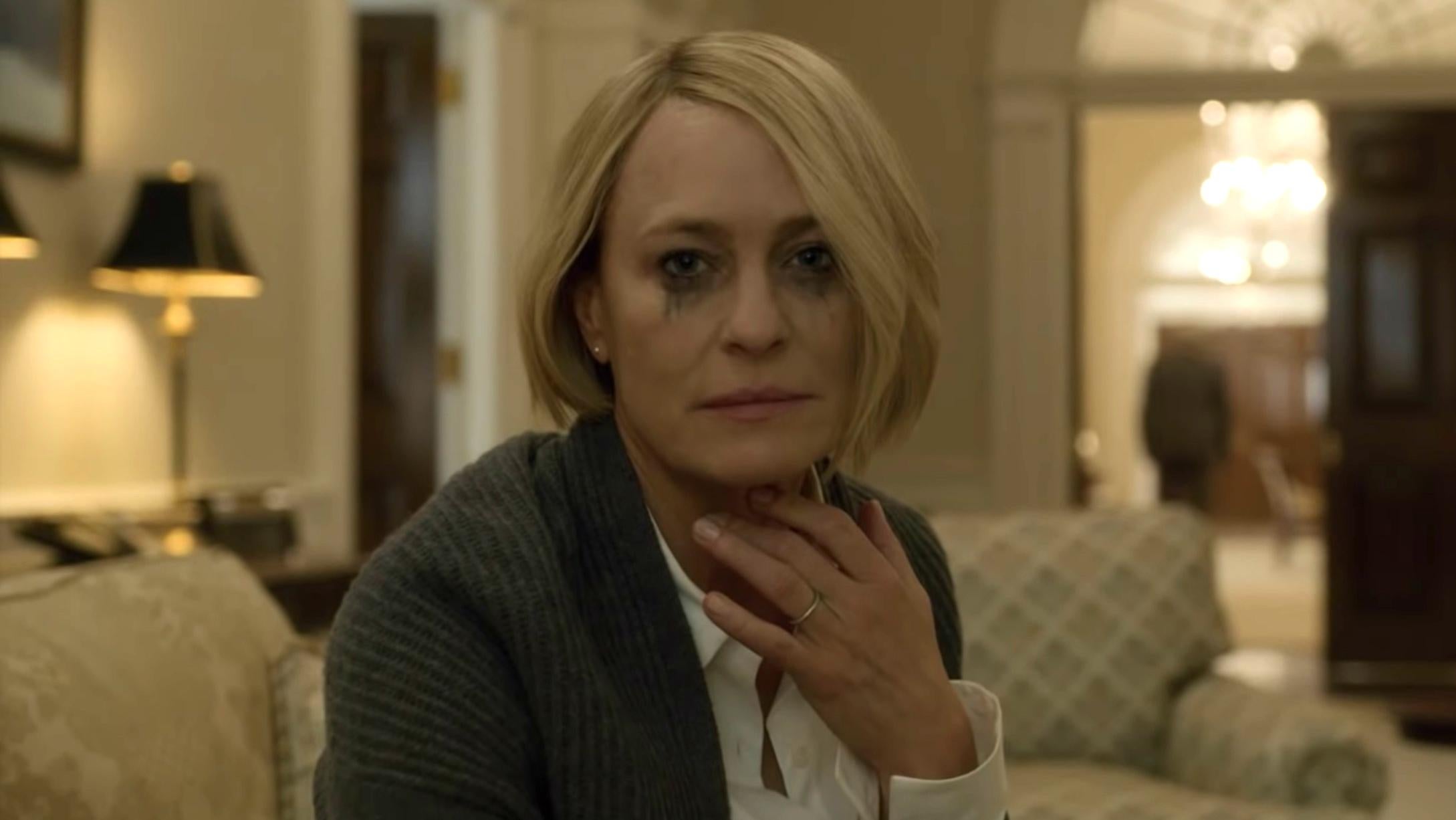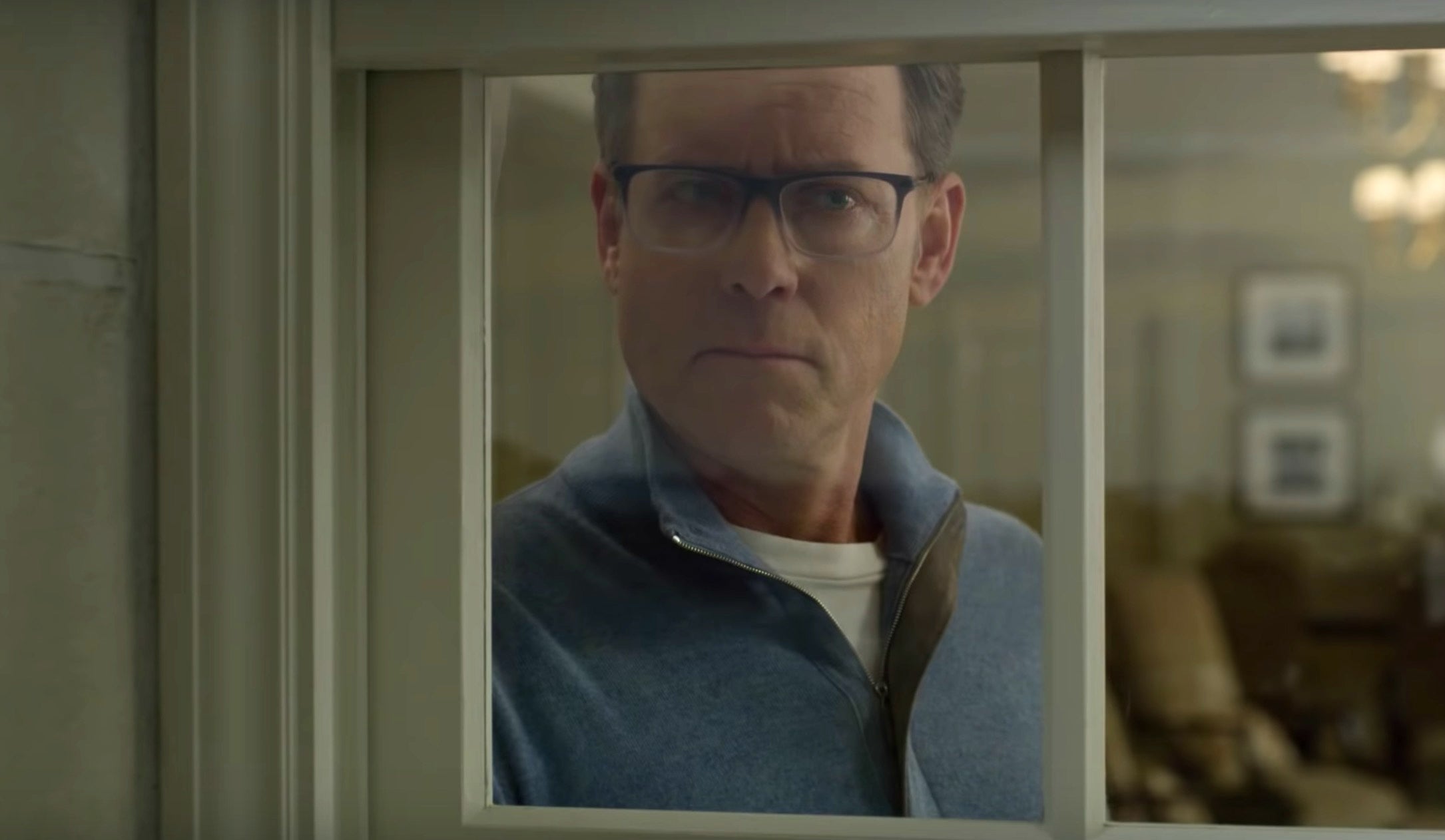House of Cards, season 6, episodes 1-5 review: Frank Underwood leaves behind a power vacuum, and an entertainment one too
The final season is built on the same political chicanery that the show always has been, but somewhere along the line the double and triple crossings stopped being fun

Your support helps us to tell the story
From reproductive rights to climate change to Big Tech, The Independent is on the ground when the story is developing. Whether it's investigating the financials of Elon Musk's pro-Trump PAC or producing our latest documentary, 'The A Word', which shines a light on the American women fighting for reproductive rights, we know how important it is to parse out the facts from the messaging.
At such a critical moment in US history, we need reporters on the ground. Your donation allows us to keep sending journalists to speak to both sides of the story.
The Independent is trusted by Americans across the entire political spectrum. And unlike many other quality news outlets, we choose not to lock Americans out of our reporting and analysis with paywalls. We believe quality journalism should be available to everyone, paid for by those who can afford it.
Your support makes all the difference.Kevin Spacey had to exit House of Cards from an ethical standpoint, but it could have made narrative sense anyway.
Ever since Frank Underwood became president at the end of season two, the Netflix original has drifted directionless. It was initially all about the struggle for power, but once Underwood attained the very highest office following that enthralling exchange of letters with former president Walker, the question became, um, how does he keep it, I guess? The show felt like it was merely treading water in seasons three, four and five, Frank having no clear goal nor motive, and limited room to exact evil amid all the spotlight and security that being the president brings.
Maybe there was a final season that would have paid all this off, and which we’ll never get to see. But, nevertheless, the shift of focus to Claire Underwood (Robin Wright) was not only a necessity but an opportunity. What makes her tick? What secrets does she have to share with us through the fourth wall? How might a female presidency play out? Is she really more virtuous than her husband, or just better at faking it?
Well, don’t expect to find much in the way of answers in season six, at least in the first five episodes that Netflix made available to critics ahead of the full season’s launch on 2 November.

I’ll try and steer clear of the plot as much as possible, because plot is all the show really has given its fairly dreary set of remaining characters. This much, however, has already been made clear in the trailers: Frank Underwood is dead and his widow Claire is trying to keep her administration alive, finding that her husband’s crimes aren’t as easy to bury as his corpse.
Former aide and accomplice Mark Usher (Campbell Scott) – now Vice President – is back, along with a handful of other characters to whom you might say, “ah yes, I remember they exist now”. On the more memorable end of the spectrum, there’s trade warhorse Jane Davis (Patricia Clarkson) and semi-disgraced White House chief-of-staff Doug Stamper (Michael Kelly). At the other is mildly miffed press secretary Seth Grayson (Derek Cecil) and that FBI Deputy Director (Jeremy Holm’s Nathan Green) who’s the spitting image of a Thwomp from Super Mario.
Frank’s departure, along with the season five deaths of LeAnn Harvey (Neve Campbell) and Tom Yates (Paul Sparks), pave the way for new key characters. There’s a new key family, actually, the appropriately named Shepherds – wealthy owners of an industrial conglomerate and such sizeable Democratic party donors that they exercise considerable influence over the president. In fact, Claire is essentially expected to be their puppet, so you wonder where exactly they’ve been the past five seasons. The introduction of the bankrolling family is a smart move and feels authentic (they’re presumably modelled on the real life Mercers), but Bill (Kinnear), his sister Annette (Diane Lane) and her son Duncan (Cody Fern) are personality-wise a less than scintillating bunch. Duncan has his moments, but compared to other oligarchic TV families (The Roys in HBO’s Succession spring to mind), the Shepherds feel paper thin.
Claire must manage the Shepherds while – sociopath that she is – attempting to leverage her grief over her husband’s death. “I thought voters were supposed to like a widow,” she vents at one point, as her base, her party and the suspicious press turn on her.

The show’s journalists, led by the tragi-comic Tom Hammerschmidt (Boris McGiver) are used sparingly in these first five episodes, though their plight is a poignant one in 2018: they keep publishing bombshell report after bombshell report, but the shrapnel seems to bounce right off the President. People have been quick to suggest that the hugely dramatic Trump administration has made it difficult to write a compelling political drama, but I disagree. The 2016 presidential election has blown open the blast doors for what passes as “realistic” in these kinds of shows, and a lot of the Underwoods’ lies and crimes now feel much less far-fetched.

Watch Apple TV+ free for 7 days
New subscribers only. £8.99/mo. after free trial. Plan auto-renews until cancelled

Watch Apple TV+ free for 7 days
New subscribers only. £8.99/mo. after free trial. Plan auto-renews until cancelled
Open season for high drama it may be, but this batch of episodes still manages to feel slightly, well, banal. Its built on the same political chicanery that the show always has been, but somewhere along the line these double and triple crossings stopped being fun. Season six had to be swiftly rewritten following Spacey’s exit and it shows in the often convoluted dialogue. Exhibit A; Jane Davis in conversation with the Veep: “I mean, in my experience, once the chaos tips into forever, you’ve got nothing. And we’re very close to forever.”
Frank Underwood has left behind not only a power vacuum but an entertainment one. The first half of season six is by no means terrible. The swan-like Robin Wright is as magnificent as ever – a worthy show lead if ever there was one – and by the end of episode five, she has feigned to back herself into a corner and set up an intriguing and challenging escape. But I’m not sure how much I enjoyed getting to it, and it’s still unclear what this show is actually about. The actions continues to play out like a chess match, but chess is not exactly a spectator sport.
House of Cards season 6 arrives on Netflix on 2 November
Join our commenting forum
Join thought-provoking conversations, follow other Independent readers and see their replies
Comments